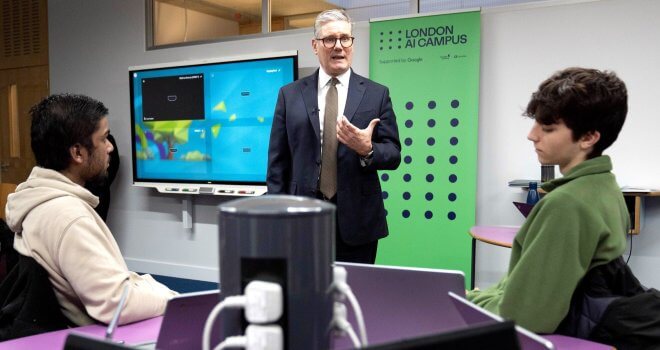Businesses Want COP15 Nature Summit To Deliver Clarity

As government officials begin negotiating Wednesday toward a hoped-for deal to protect the wildlife and resources that prop up the global economy, investors are looking for one thing above all – clarity.
As the COP15 biodiversity summit kicks off in Montreal, businesses and corporate leaders are pushing for an ambitious agreement with strong policies that will provide guidance to companies seeking to change.
In the course of the two-week summit, all 196 governments under the U.N. Convention on Biological Diversity need to agree on how to go about ensuring there is more “nature” – animals, plants and ecosystems – in 2030 than there is now.
They are under increasing pressure to show progress in tackling climate change and reducing harm to the environment. But countries have yet to agree on which environmental goals to prioritize, how companies should report environmental risk and how their activities should be regulated.
“We want to see a framework that’s really providing clear targets, clear definitions to enable action to be taken. And helping to then build up a pipeline of nature-positive projects and investments,” said Tamsin Ballard, the climate and environment director at the Principles for Responsible Investment, a U.N.-backed network of investors.
Money has been flowing fast into clean energy businesses in recent years, as well as funds and projects labelled environmentally sustainable, indicating there is strong investor appetite for putting money toward environmental solutions.
But investments toward biodiversity-focused projects are far fewer and smaller in scale, even though half the world’s economy relies on resources and services tied to natural ecosystems, according to the U.N. Environment Programme.
The agency has said some $384 billion will be needed each year for nature projects by 2025.
“Nature needs to be thought of as an asset – and we invest in assets,” said Tony Goldner, executive director of the Taskforce on Nature-Related Financial Disclosures, which is working on a framework to manage and disclose risk exposures due to nature in the global economy.
INVESTING IN NATURE
Actions such as improving soil quality, bolstering tree density or clearing water basins come with economic gains, Goldner said.
“If we take that mindset to nature, it leads to the investment models that would allow us to invest in nature as infrastructure,” he said.
Business leaders have responded to the 2015 Paris Agreement on climate change with pledges to limit companies’ climate-warming emissions through measures such as switching to renewable energy sources.
But while many companies say they are also considering biodiversity in their investments, less than half of 7,700 surveyed by environmental disclosure platform CDP have taken fresh action on it in the past year – and most remain unaware of the harm caused by their supply chains.
Forcing large companies to assess and disclose their impact on nature and capturing more data would be an important step, said Whitney Sweeney, investment director for sustainability at fund manager Schroders.
“For us to really fulfil our role as an asset manager, we need a robust understanding of what those nature-related risks are,” Sweeney said, echoing a call from more than 330 businesses in October.
Andre Hoffmann, vice-chairman of Roche Holdings, one of the signatories, said: “Many were surprised to see businesses call on governments for enhanced regulation,” but the need was clear to encourage boards to overhaul their business models.
With an eye on previous political efforts to jumpstart finance into helping fix the biodiversity challenge, Martijn Wilder, CEO of climate change investment and advisory firm Pollination, was even more blunt.
“Two years ago, all these governments around the world said ‘let’s put trillions of dollars into nature.’ It just never happened,” he said. “Because again, it’s great to call for it and say what’s needed, but unless you actually are forcing companies to do it, they’re just not going to do it.”
(Reporting by Isla Binnie in New York and Simon Jessop in London; Editing by Katy Daigle and Deepa Babington)




